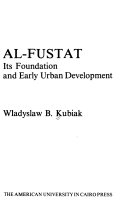The Institutionalisation Of Urban Upgrading Processes And Community Participation In Egypt
Ahmed Eiweida.

Overview
Urban upgrading of low-income areas in developing countries has a limited impact on the inhabitants' lives if it simply means the physical improvement of housing and its surrounding environment. If upgrading is to be sustainable', it should incorporate empowerment', such that the beneficiaries' are able to act independently and to participate in future activities with the state and civil society organisations after a project's completion. The institutionalisation of sustainable upgrading is understood as a range of processes by which local government and community participation ensure the continuation of valued neighbourhood outcomes. The achievements of urban upgrading are analysed through pilot urban upgrading schemes promoted by the Department for International Development (DFID) and the German Agency for Technical Co-operation (GTZ) in the Egyptian cities of Ismailia and Aswan. Their respective project objectives and management systems provide comparative insights into the potential of alternative conceptual and legislative approaches. A multi-method approach is employed through a multi-disciplinary framework owing to the paradigm shift in planning and foreign aid over the period of these projects. A conceptual framework, accountable bureaucratic capacity' is utilised to investigate the ability of local government to institutionalise collaborative urban upgrading measures in partnership with civil society organisations. The main argument is that the latter cannot contribute to sustainable development, democratisation or to protect citizens' rights in low-income neighbourhood without accountable representation from their side, a reciprocal and active representation from the citizens concerned, and an accountable public sector. The capacity of urban governance and the extent to which participatory initiatives can exploit the potential within existing structures and systems are examined. This examination allows an evaluation of how far a participatory project rated as goodpractice' can enhance citizens' awareness of opportunities, political participation and local government performance, while building collaborative and institutionalised planning capacity. The research concludes that the sustainability of urban upgrading depends on the form of citizens' participation and the management styles of cities. Successful participation during _ an upgrading project may have transformative' potential to encourage citizens' political participation. If citizens are not active, even though they reject- the government's development agenda, or have to depend on informal' networks to provide their needs, they may be characterised as `free-riders', who withdraw from urban governance and its collaborative decision-making processes. Legal recognition of squatter settlements is the first step required to institutionalise upgrading policies, particularly for indigenous or customary groups trying to survive in a world characterised by increasing interdependence and escalating threats to local ties. However, although this recognition strengthens a group's ability to negotiate and interact with non-group members, it may also have detrimental effects if it is not supported by additional legislation. Local government needs institutional reform and a strafegiccäpacity-building programme to forge partnerships and the joint responsibility of the public and private sectors, as well as of civil society.






















